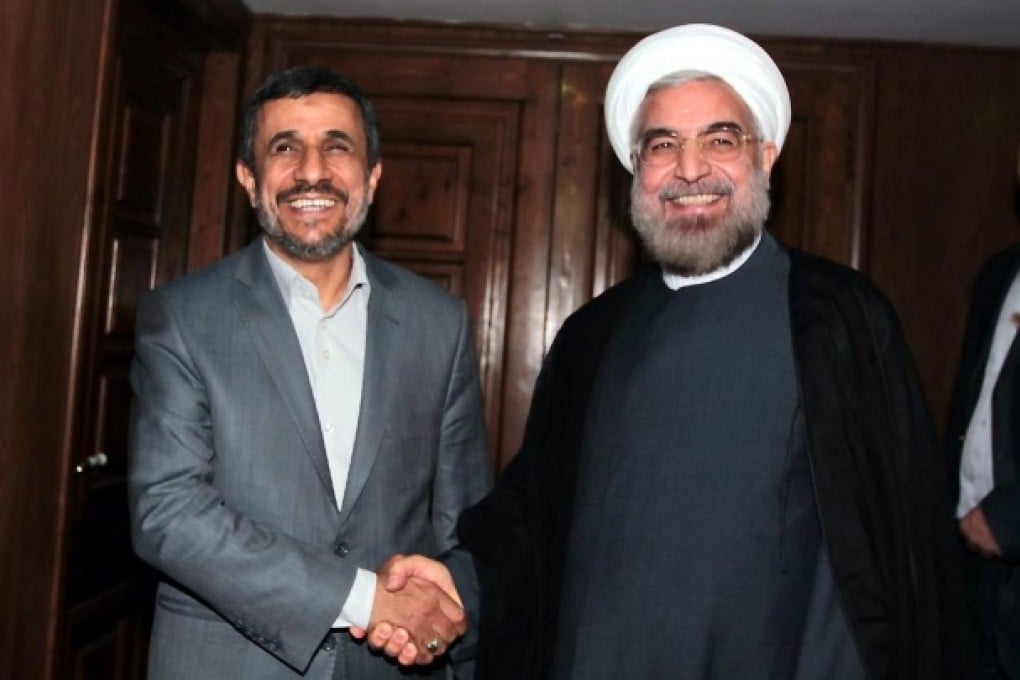
Iranians would seem to have chosen wisely by electing Hassan Rowhani as their next president. A moderate candidate among a field dominated by conservatives, he offers a welcome break from Mahmoud Ahmadinejad's tumultuous outgoing presidency. His taking office in August will herald a change of tone for the Islamic republic. If campaign promises are faithfully followed up, it will also be a matter of much-needed substance.
Ahmadinejad's inflammatory diplomacy has served Iran poorly. US and European Union sanctions on the oil and banking sectors over Iran's alleged nuclear weapons programme have starved the government of revenue. That has meant shrinking economic output, a currency crisis, inflation at more than 30 per cent and a jobless rate of 15 per cent.
Rowhani offers hope of a turnaround. Although a cleric with close links to conservative supreme leader Ayatollah Ali Khamenei, his campaign centred on mending ties with the West. His experience as Iran's chief negotiator in talks on the nuclear issue from 2003 to 2005 stand him in good stead. He has also pledged greater media freedom, to reduce government interference in private lives and usher in sexual equality.
Those promises and the backing of prominent moderate politicians won him 50.7 per cent of the vote, three times as much as the next nearest candidate. But what is said in the heat of a campaign can sometimes have little meaning when placed in the context of reality. Real power is vested in Khamenei and change requires his blessing. It remains to be seen whether Rowhani has the will or ability to initiate a new direction.
Signs from a press conference on Monday are promising. While a halt to nuclear activity was ruled out, he held out hope of an early deal with Western negotiators. A pledge to restore ties with the US was reiterated. After the 2009 poll debacle in which Ahmadinajad gained a second term amid mass protests against perceived fraud, Rowhani has been given a clear mandate to govern. Improving Iran's international standing is a priority. A conciliatory foreign policy is the best place to start.
